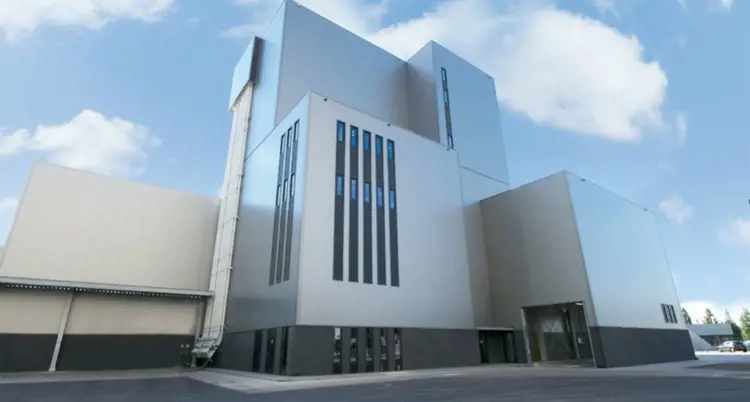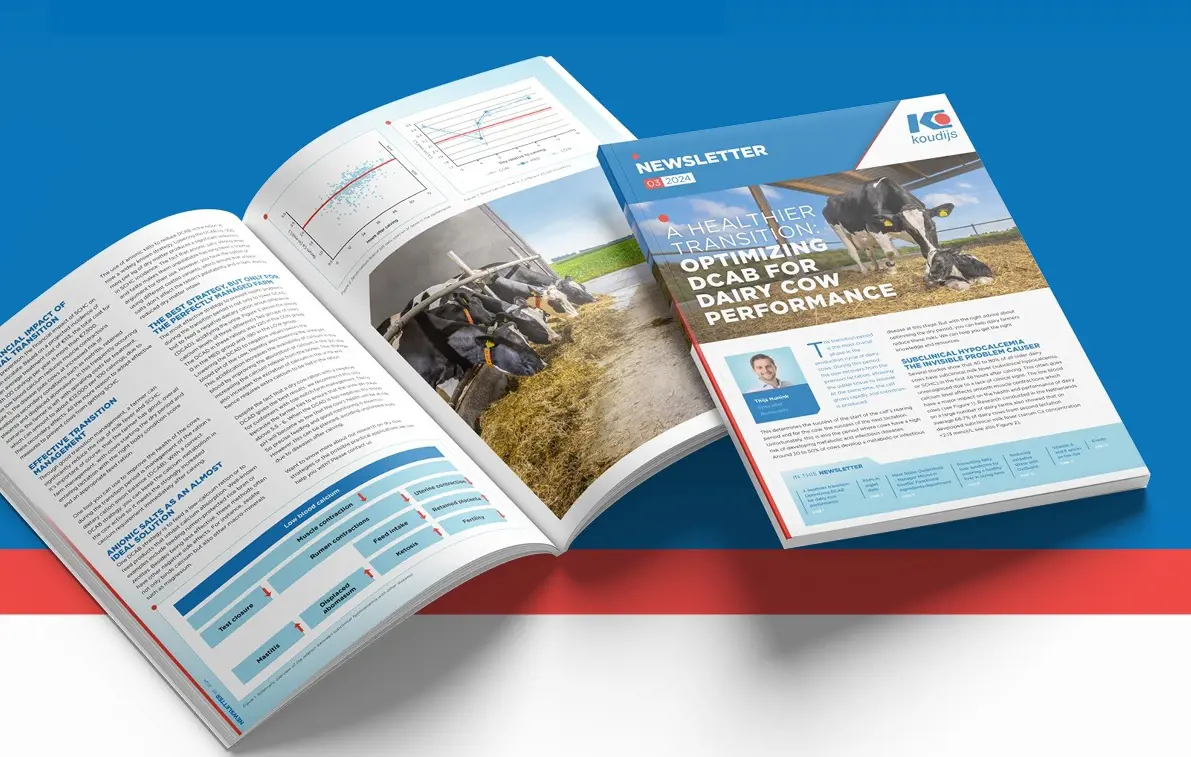Improving sustainability in the feed production supply chain
Sustainability is no longer a "nice-to-have", it's becoming the key to staying in business. More and more environmental legislation is coming into effect. In addition, retailers, food service companies, consumers and other stakeholders are asking questions about the environmental impact of food production. In the first in a series of articles, we examine the most relevant legislation, its impact on the feed industry and how Koudijs can help customers comply.

The EU Green Deal aims for climate neutrality by 2050, driving change across sectors such as agriculture through several pieces of legislation and directives. Key initiatives, such as the Fit for 55 Package, Farm to Fork Strategy, and the Corporate Sustainability Reporting Directive (CSRD), aim to reduce emissions and promote sustainable practices. For compound feed producers, the CSRD, the EU Deforestation Regulation (EUDR) and the Farm to Fork Strategy are particularly relevant.
Sustainability reporting
The CSRD requires companies to publicly report on carbon emissions, responsible use of resources, biodiversity, human rights, labour practices and anti-corruption. The directive applies to large companies operating in the EU, so not all feed mills and integrators are directly affected. As part of a large international organisation, Koudijs is ready to comply with the directive and will publish its own CSRD report. We are transparent about our sustainability ambitions and achievements and will share this information with our customers to help them meet growing reporting requirements.
Deforestation legislation
The second piece of important legislation is the EUDR which targets products linked to deforestation, such as soy and palm. These products require full traceability to prove they are deforestation-free.
Farm to Fork Strategy
Part of the broader Green Deal, the Farm to Fork Strategy aims to make food systems fair, healthy and sustainable, with a focus on lowering carbon footprints, reducing pesticide use and more sustainable farming practices. With Koudijs' expertise and tools, customers will be able to adapt quickly to upcoming regulations and requirements resulting from the Farm to Fork Strategy.
Responsible Feed Programme
Koudijs participates in the global Responsible Feeding Programme of its parent company. This is a set of long-term goals and practices aimed at making our food supply more sustainable, reducing the environmental impact of food production and improving food security around the world. The programme is based on four pillars, and each one contains several topics associated with the feed industry and animal protein production. For 10 of the 16 topics, we have set so-called Global Green Goals. These include: reducing our carbon footprint, sourcing raw materials responsibly and sustainably, and reducing antibiotic use.

Read the latest version of the Koudijs newsletter!
Read hereReducing greenhouse gas emissions
With regard to its carbon footprint, Koudijs is dedicated to actively reducing its environmental impact and contributing to the Paris Climate Agreement. We have set ambitious goals aligned with the GHG Protocol and Science-Based Target initiative (SBTi) principles, based on its 2022 baseline. For Scope 1 and 2 emissions - the emissions produced from our own operations and the energy we purchase - we aim to achieve a reduction of 42% by 2030. For Scope 3 emissions - all other indirect emissions across the value chain - we aim to achieve a reduction of 25%. In addition, we aim to reduce Scope 3 (FLAG) emissions - emissions produced by raw material cultivation and particularly cultivation involving deforestation and land conversion - by 30.2%. Reducing our greenhouse gas emissions will also improve the sustainability of our products, which in turn will contribute to our customers' efforts to reduce their own Scope 3 emissions.
Reducing CO2 emissions in feed production
Feed is the largest contributor to carbon emissions from animal protein production. For broiler meat, feed accounts for more than 80% of total emissions, while for pig meat, it represents over 60%. Reducing the carbon footprint of broiler and pig meat starts with good selection of raw materials. Prioritising raw materials with a low land use change (LUC) impact can significantly reduce CO₂-equivalent emissions. Furthermore, shifting to higher use of by-products in feed formulations not only optimises existing resources but also enhances overall resource efficiency. This approach supports a more circular and sustainable agri-food system, helping to meet the climate goals of retailers and EU governments while maintaining productive and efficient livestock production.
Environmentally responsible sourcing
We have set a clear goal to source deforestation-free soybean meal and palm oil. With this ambition, we are well positioned to support customers with expert advice and guidance on compliance with deforestation regulations. Koudijs already holds origin data for all key raw materials in its supply chain. This traceability enables us to not only demonstrate deforestation-free sourcing but also to assess whether land use change (LUC), such as deforestation or ecosystem conversion, has occurred.
Data-driven sourcing
Knowing the exact origin of raw materials is also essential in order to calculate the carbon footprint of feed ingredients. Land use change is often the largest contributor to the carbon impact of certain raw materials, particularly in soybean production. By having this data, we can better steer sourcing strategies, identify low-impact alternatives, and provide customers with transparent, science-based information to make more sustainable decisions.
Supporting our customers
The Responsible Feeding Programme shows that we are taking concrete steps to minimise its environmental impact and contribute to a sustainable food supply chain. As a result, our customers can not only be sure that we are operating sustainably, they can also rely on our knowledge and expertise to support them with their own sustainability goals.
